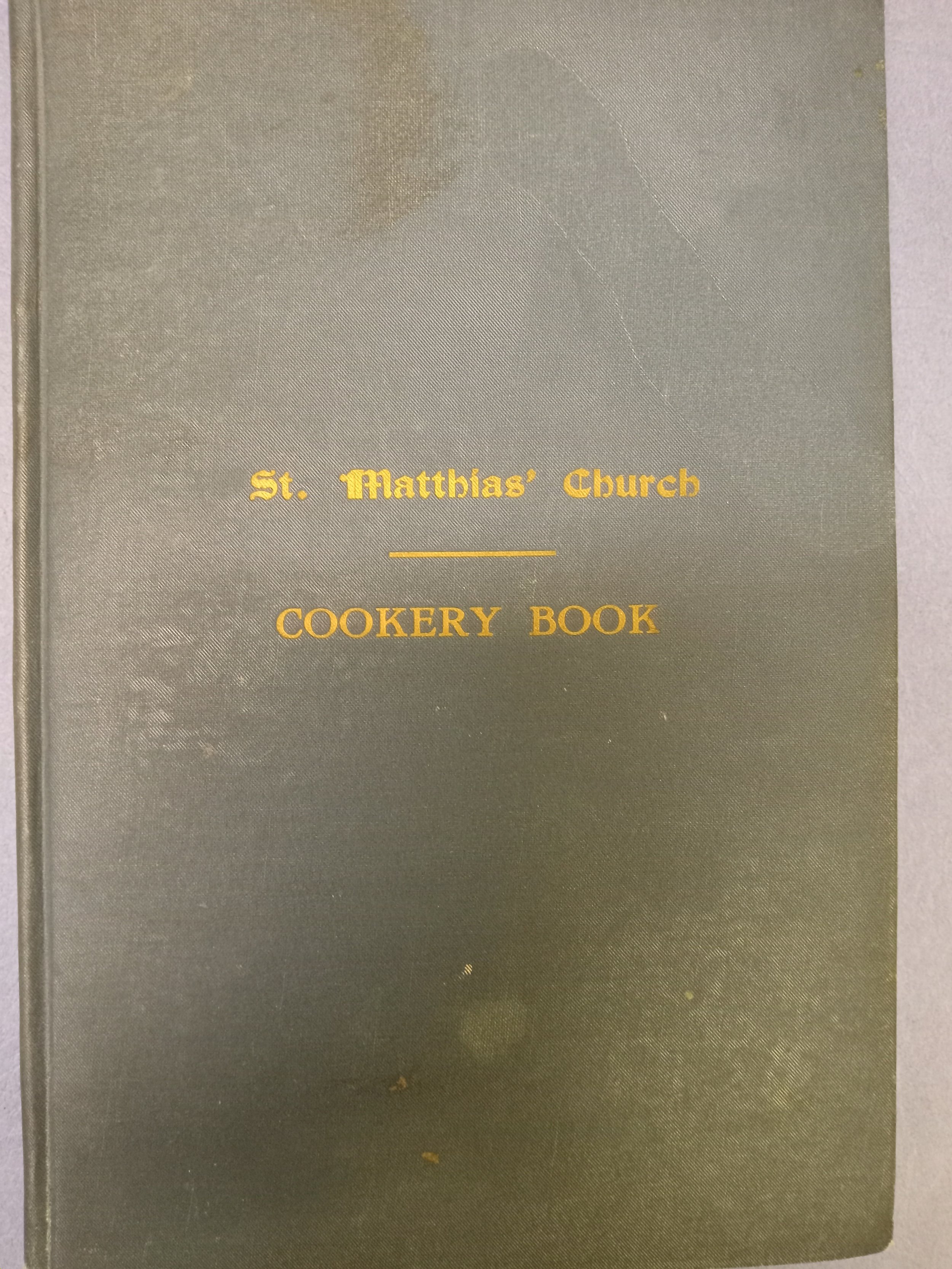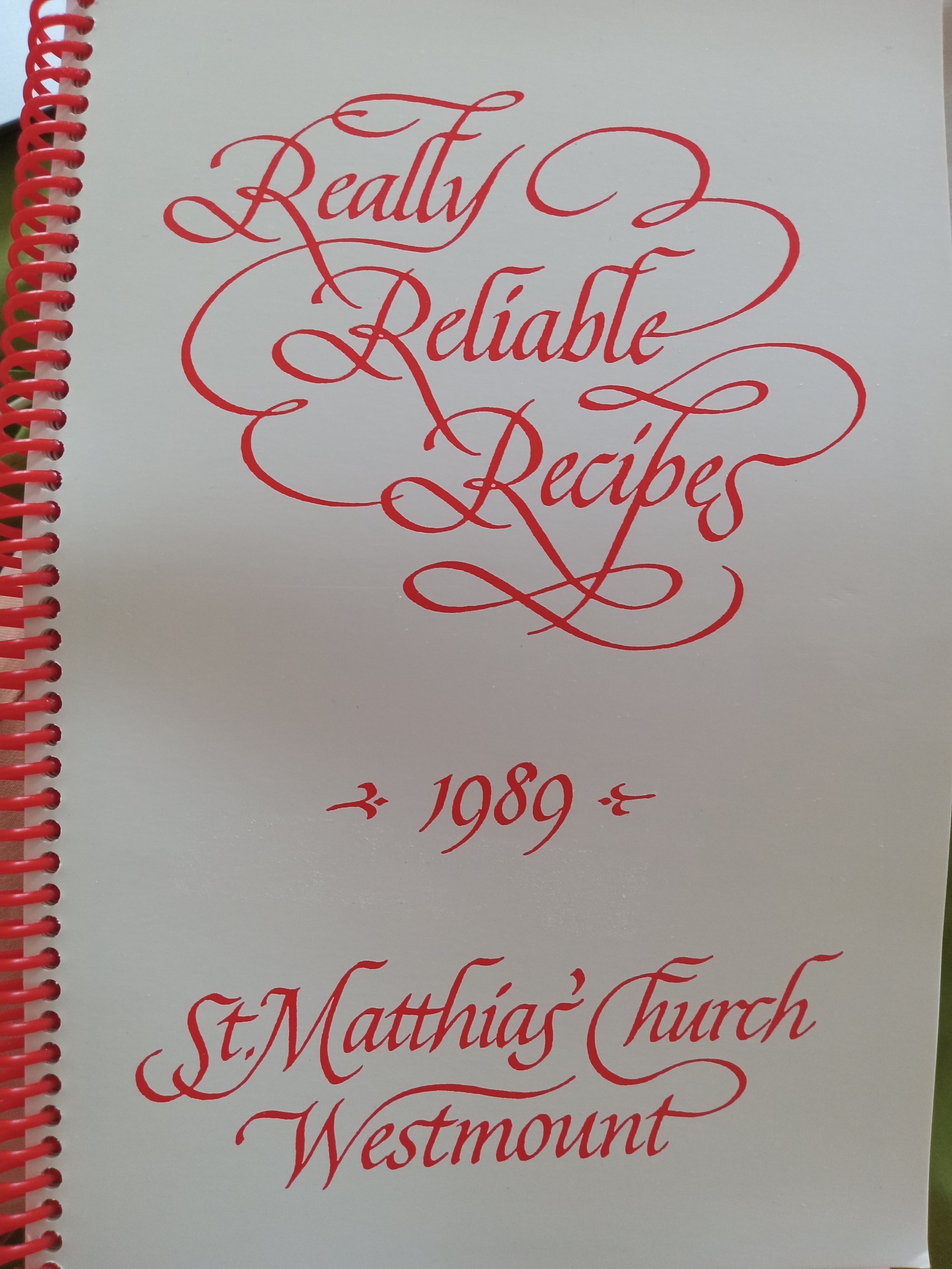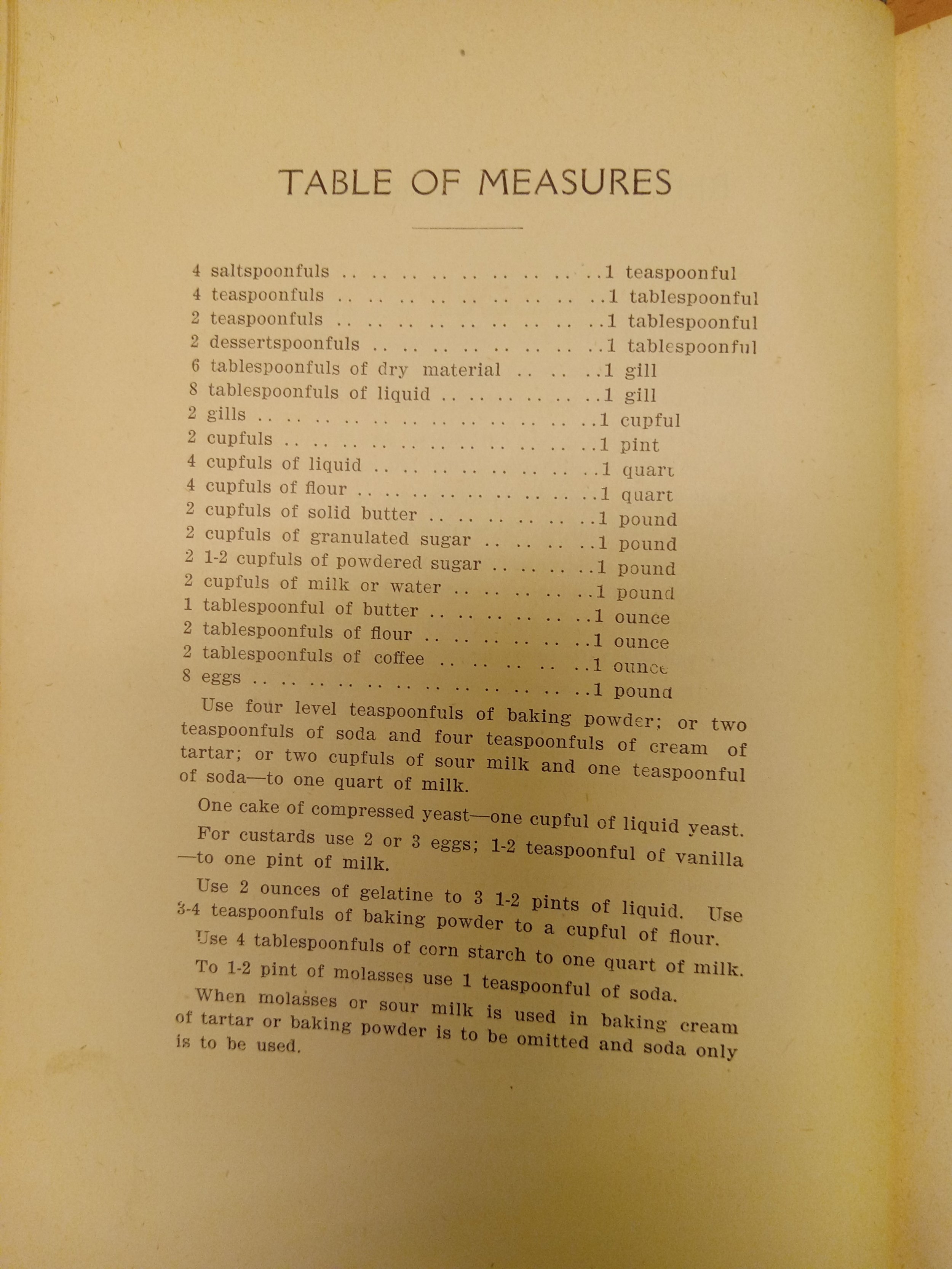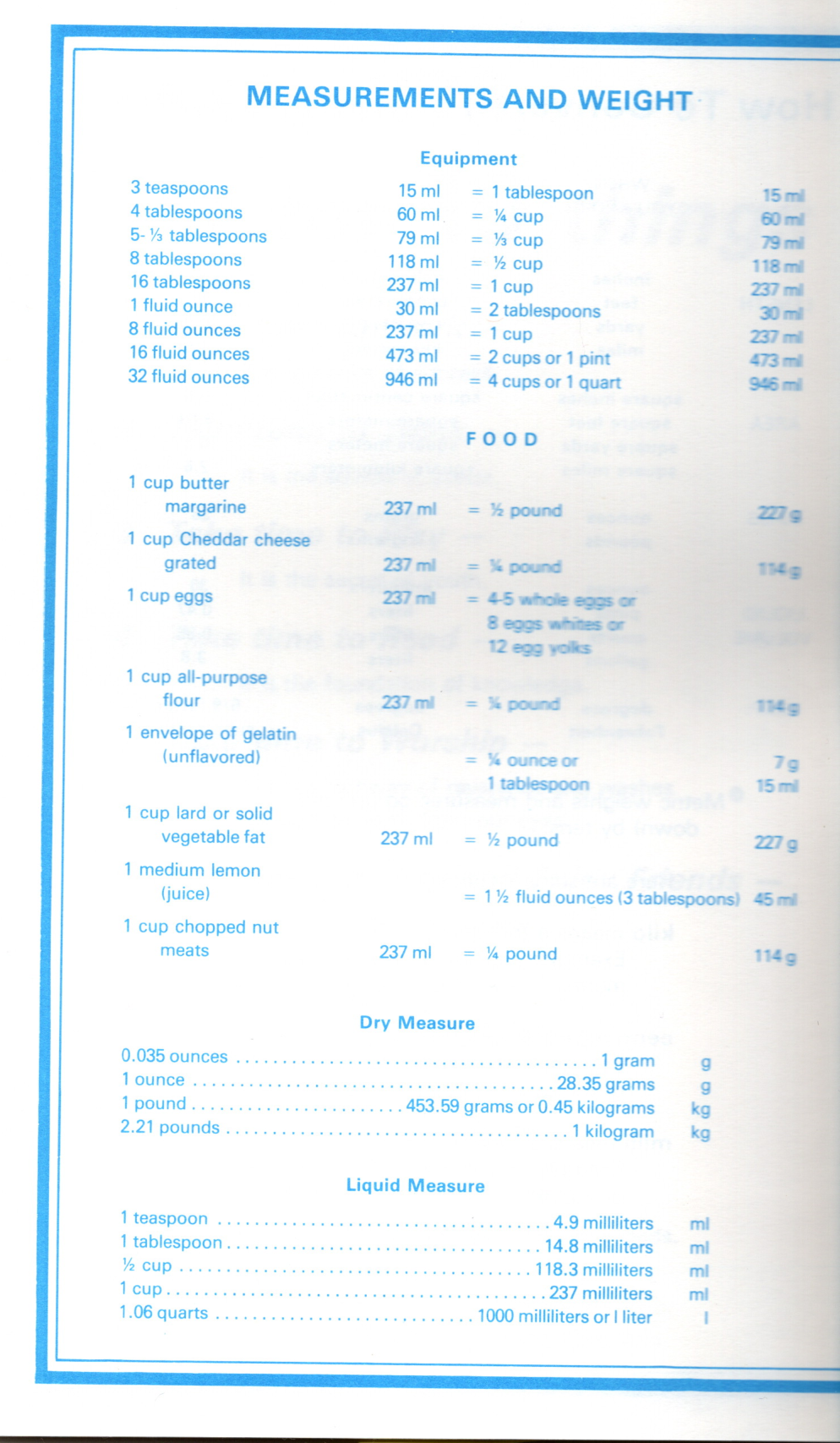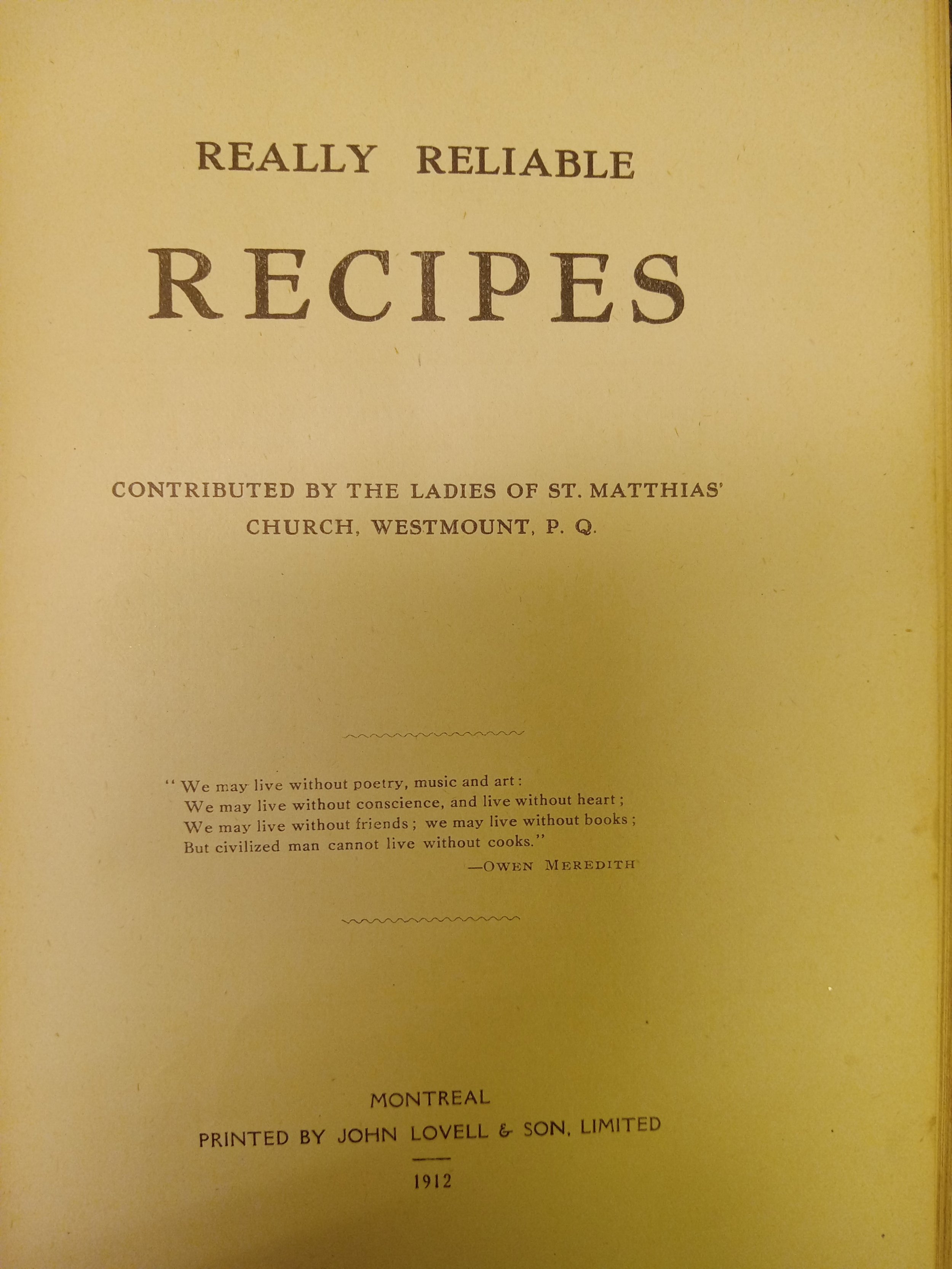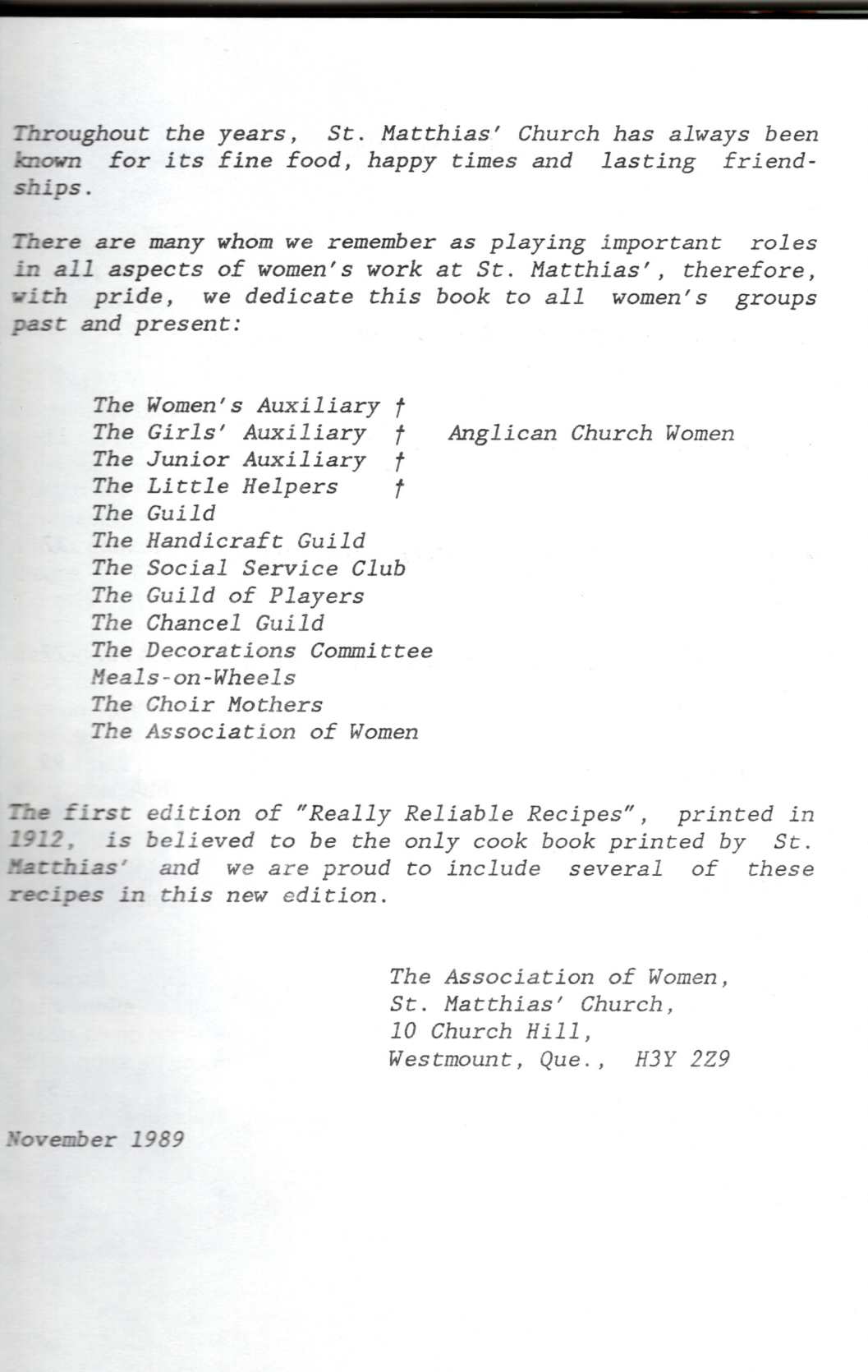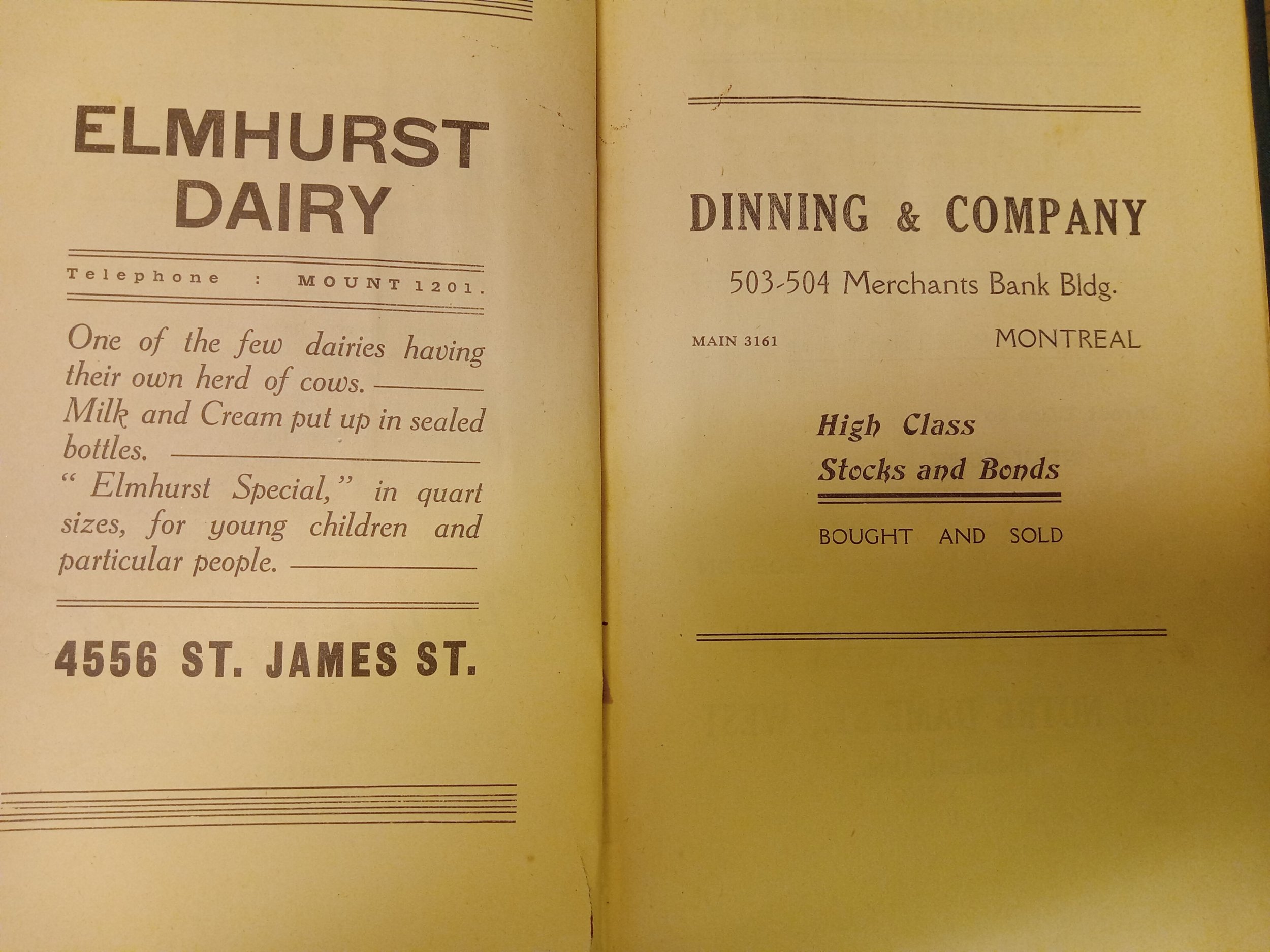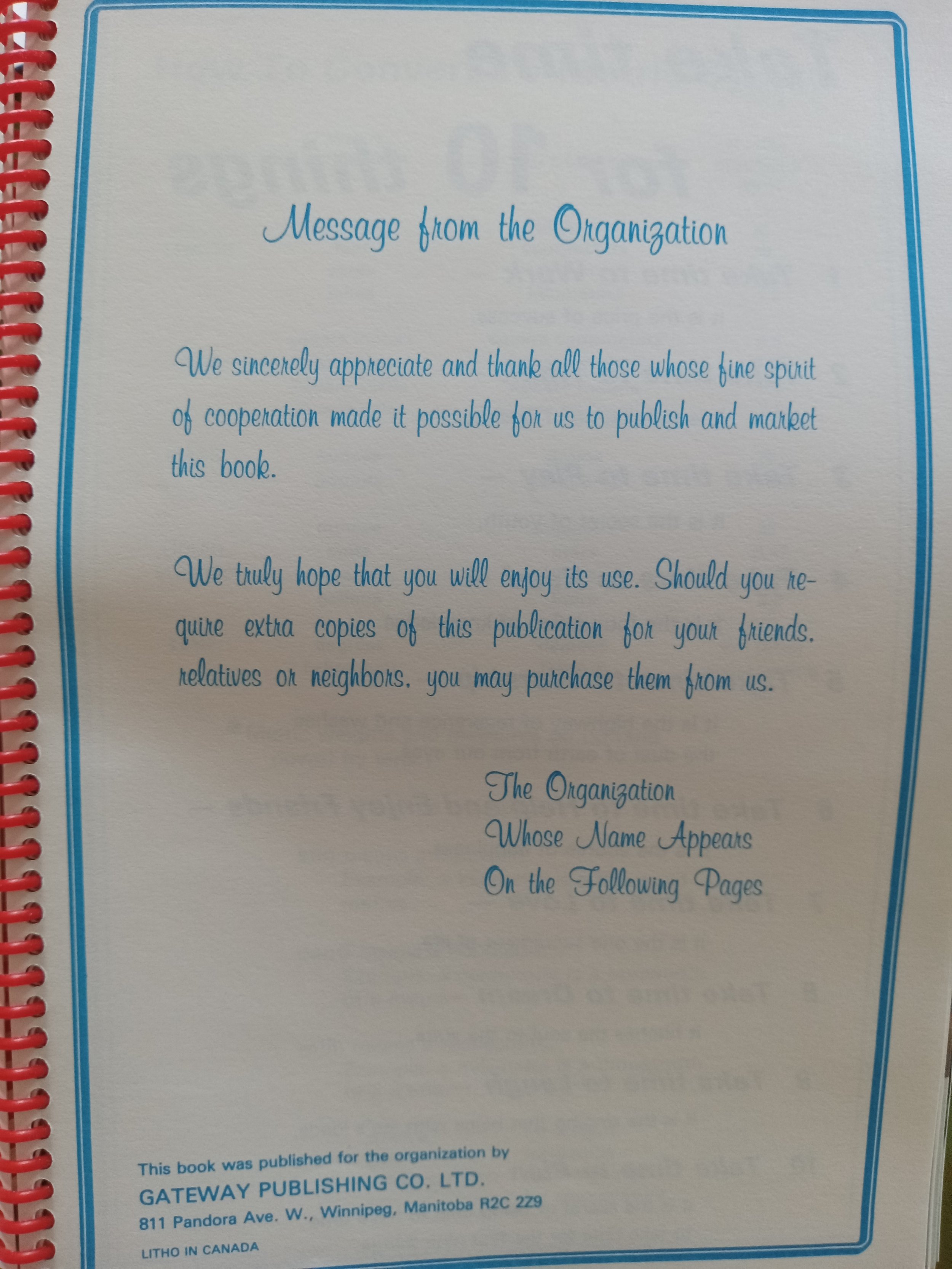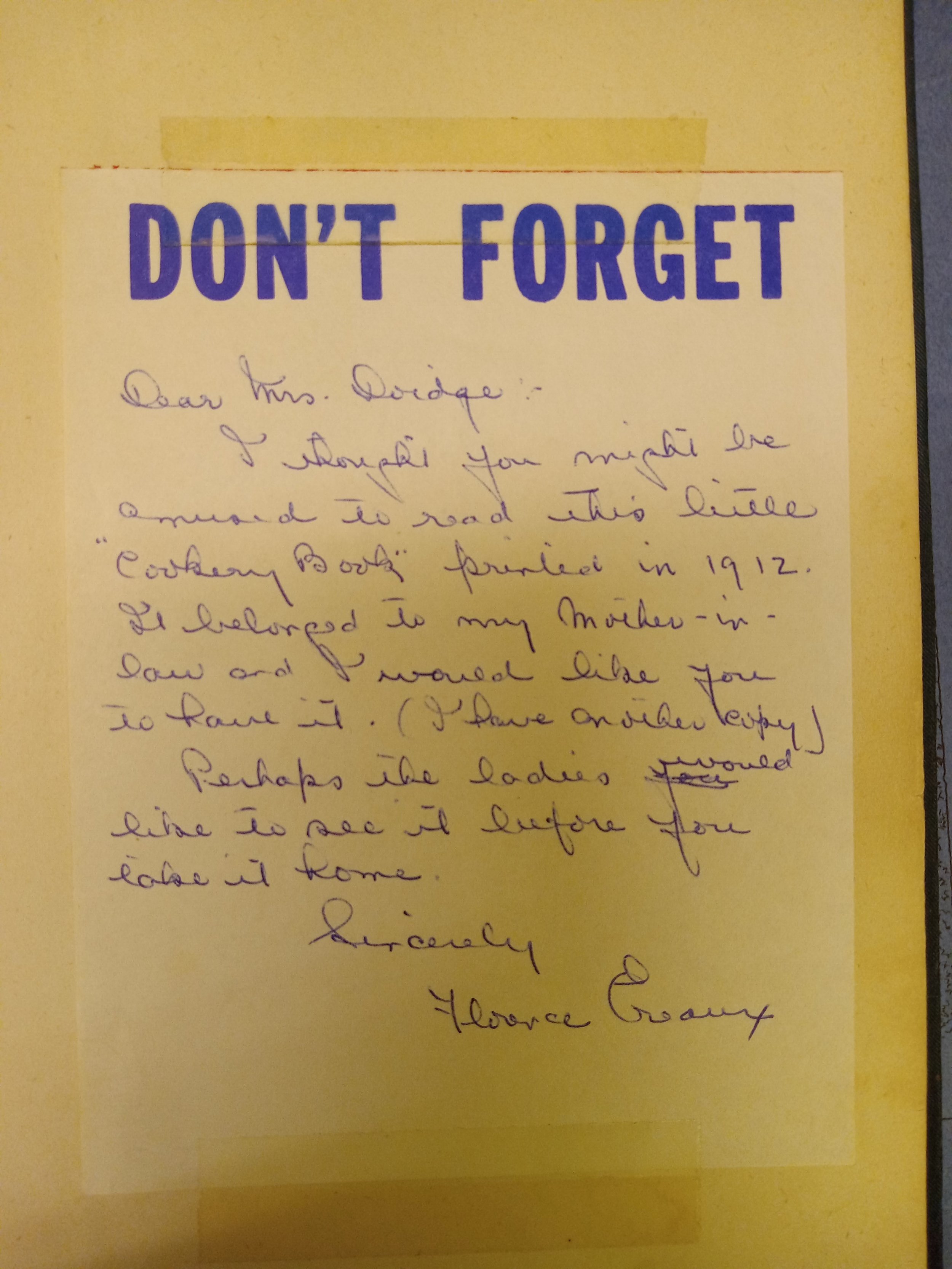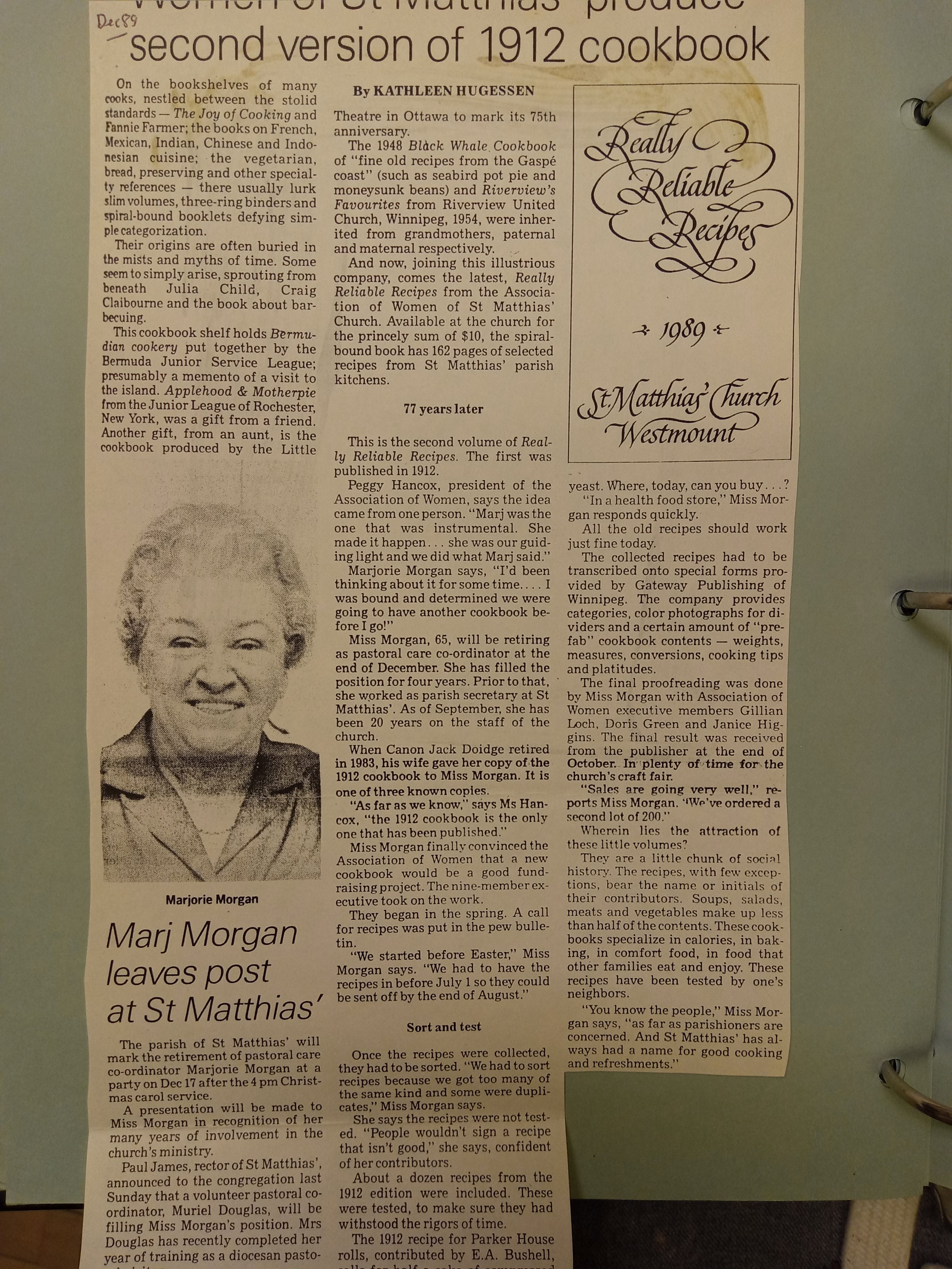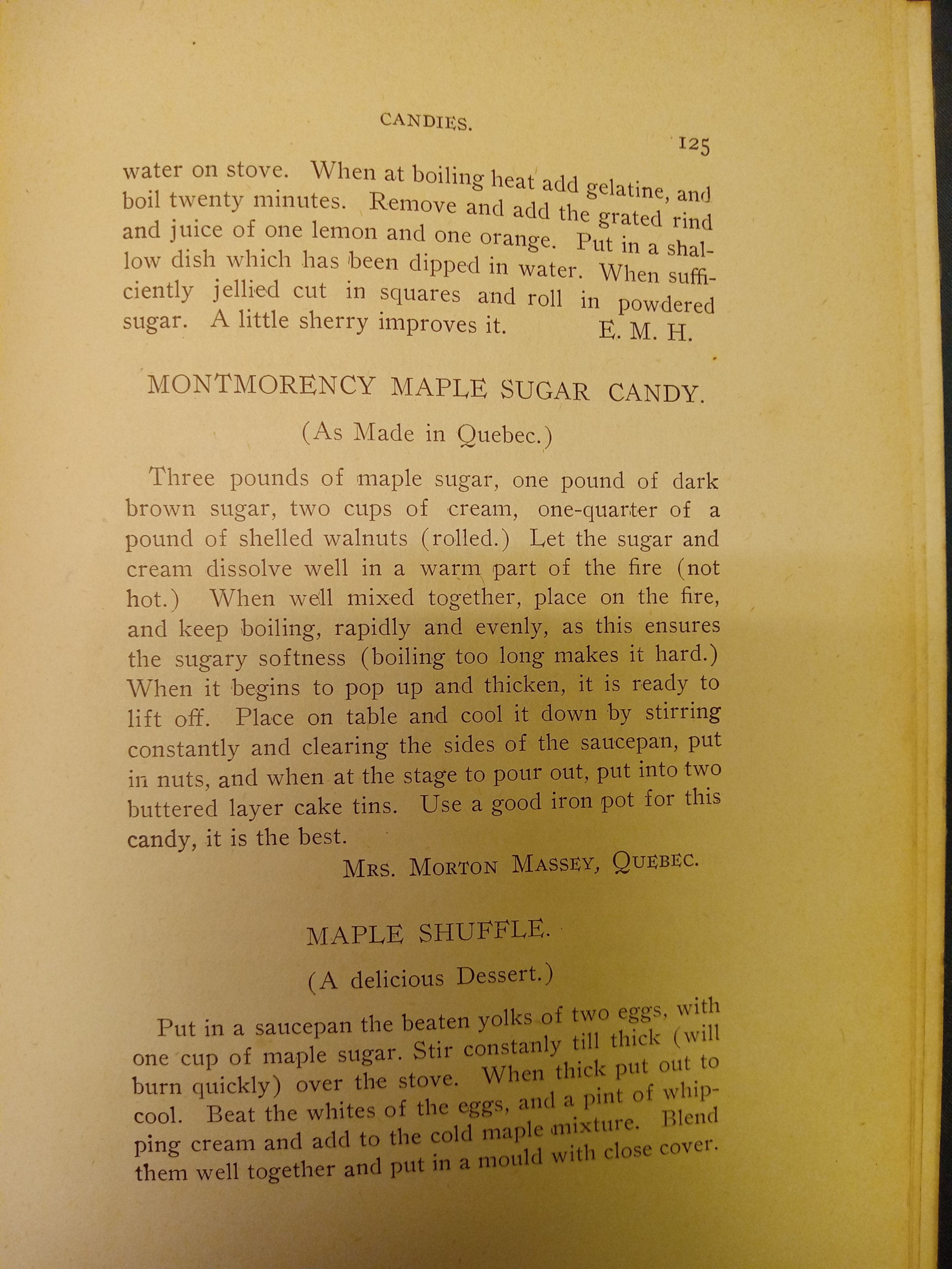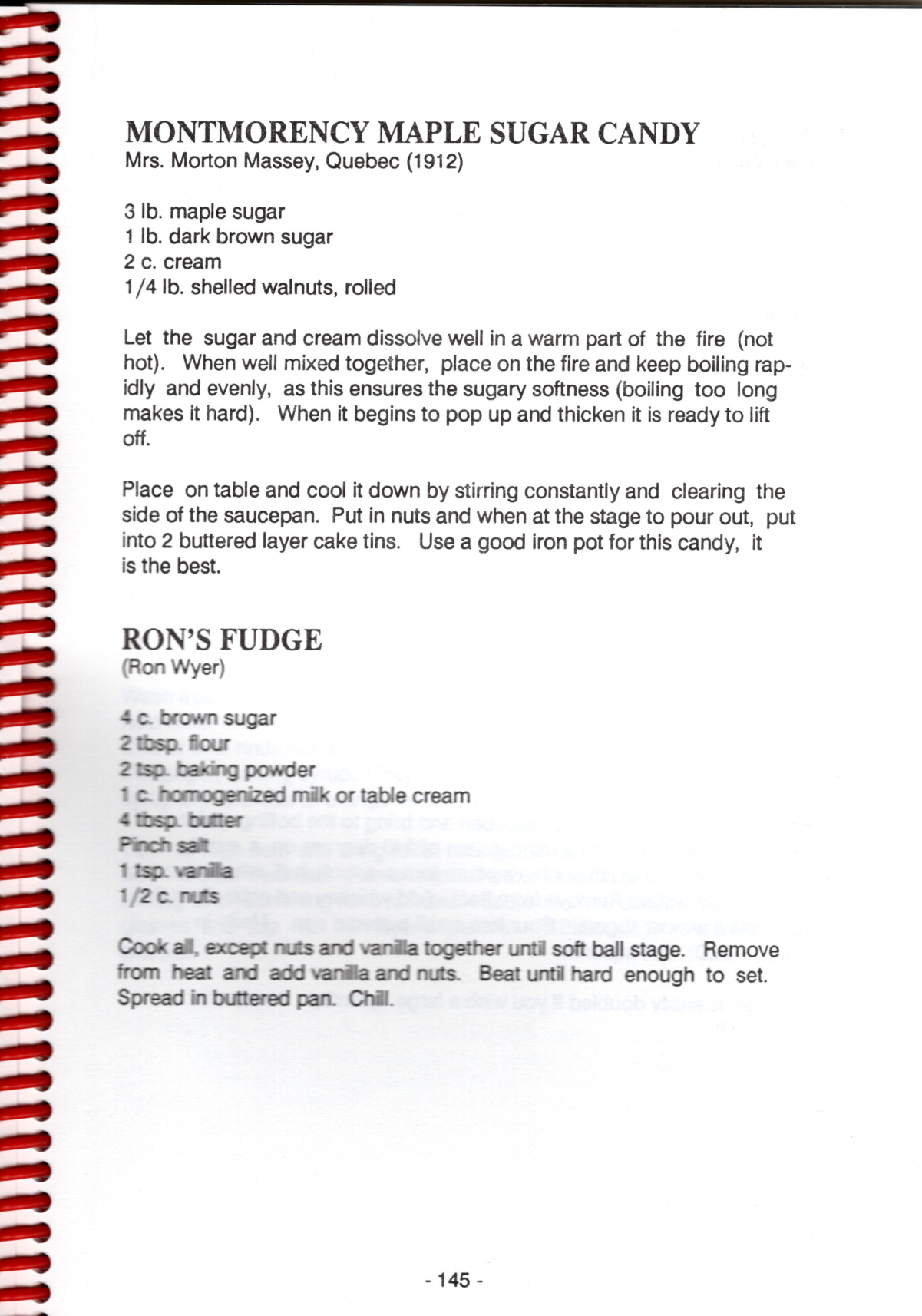July 23rd: Reliable Cookery, part one
St. Matthias’ was officially founded as a mission of St. George’s, Place du Canada, in 1873, which means our community is 150 this year! For the next 12 months, we’ll be diving into the archives to shine the spotlight on particularly interesting parts of our history.
The Association of Women’s report to Vestry 1990, detailing the successful publication of St. Matthias’ second cookbook.
Little did the Association of Women (link to Votes for Women) know, but when they embarked on the yearlong project of developing a new edition of the St. Matthias’ cookbook in 1989, it would be their last major endeavour. By the end of 1990, although they had distributed $19,000 (nearly $40,000 today) to community partners and $5,000 (a little over $10,000) to a wheelchair access project at the church, they had lost three executive members and no one had the time or inclination to fill those spots, or, indeed, those of the general membership. A petition to the Advisory Board in September 1990 and a call for proposals in that fall’s edition of Dialogue, the St. Matthias’ newsletter, did not produce any viable options. “This means the dissolution of the A.O.W.,” wrote President Verne Shaw in her report to Vestry 1991, and “As times change, so must we.” The story of the “new group comprising of all members of the parish, both men and women,” that Verne suggested be called “The Fellowship of St. Matthias” is one for another time; today, our focus lies on the Really Reliable Recipes of that last great Association of Women project.
There is nothing more ubiquitous in the North American Church than the church cookbook. The US Library of Congress maintains a significant archive, as do Library and Archives Canada and the Society of Canadian Culinary Historians. The Mennonite Church of Canada makes all their past cookbooks available online, and archives from the provincial to the private contain their own treasure stores. Lest we think that fundraising cookbooks (with their “successful profits and numerous success stories” are a thing of the past, there are still many active cookbook publishers serving churches and communities looking for something “fantastic for morale”.
Names like “Cookbook Publishers”, “Cookbook Specialists”, and “Simply Cookbooks” abound. Gateway Rasmussen, the Winnipeg company Really Reliable Recipes was published with, calls itself “The Cookbook Printer.” All have similar formulas: a handful of different pre-fab layout options to choose from, stock imagery (sending in one’s own images costs extra), and paratexts like measurement conversions and tips for a happy home. The church or community looking to fundraise with a cookbook must simply insert collected recipes into a form – now digital – and order as many books as they think they can sell – Really Reliable Recipes sold about 400 copies.
It was much more difficult in 1912, when Cookery Book was published by the St. Matthias’ Association of Women as part of a fundraising effort for the new building. John Lovell & Son, their printer, was not mass producing cookbooks; since 1850, the company had been printing for a wide variety of needs in Montreal, from an anti-labour, anti-agricultural reform essay to travelogues and the royal charter of McGill University. Today, the printshop they constructed in 1884 is both a provincial heritage site (including a museum) and a working printshop for Lovell Litho and Publications.
To pay for their Cookery Book’s beautiful green cover and the thick, soft pages within it, the Association of Women invited local businesses to take out ads in its pages, a procedure also followed for the St. Matthias’ Messenger, the then-monthly church newsletter. Printing costs covered meant that proceeds from the sale of the cookbook could go entirely to the building fund; Really Reliable Recipes, in contrast, had to pay for itself, netting some portion of the Association’s $2,850 (about $6,000 today) contribution to church coffers in 1989 – about $700 ($1500) under the expected revenue.
Despite these differences, Really Reliable Recipes was deeply influenced by Cookery Book, to the point of including several recipes from the latter – all tested to ensure they had “withstood the rigours of time.” (Recipes from current parishioners were not tested, as “People wouldn’t sign a recipe that isn’t good.”) Marjorie Morgan, who retired from twenty years at St. Matthias’ as first secretary and then pastoral care coordinator at the end of 1989, told Kathleen Hugessen of the Westmount Examiner that she had concocted the idea for Really Reliable Recipes after Betty Doidge had given her a copy of Cookery Book upon Rev. Jack Doidge’s retirement in 1983. Betty herself had been gifted the book by Florence Creaux when she and Jack had first arrived at St. Matthias’ in the 1960s. The fellowship of St. Matthias’ – a sense of community sharing that would lend its name to the Association of Women’s gender-neutral successor organisation in the 1990s – can be clearly seen in the way these two cookbooks connected people of the church across generations, centuries, and cultural backgrounds.
Although the heyday of church cookbooks, both ours and in general, is long past, we can learn a lot from their pages – and it will be to that project that we turn next week as we dive more deeply into the contents of Cookery Book and Really Reliable Recipes.


